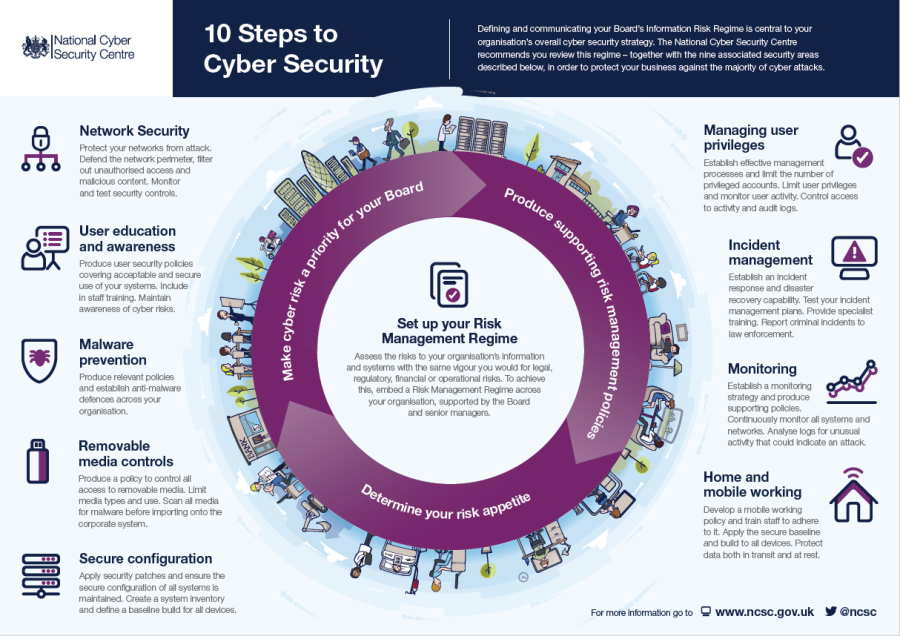The changing pace of the digital ecosystem encourages various sectors to take action. Especially in accounting, security breaches might damage your business by causing one of the most valuable pieces of data, your finances, to leak. Imagine the vast potential such financial data possesses. Are your transaction history, tax, and payroll records safe?
Before delving deeper into cyber security practices and conduct, you must be aware of the possible outcomes of breaches. These include:
- Financial Loss
- Legal Issues
- Reputational Damage

Financial Loss
Fund theft, fraudulent transactions, and unauthorised transfers are not only primary dangers caused by cyber security breaches but also have significant importance for accounting firms. Moreover, companies and businesses prefer accounting firms to avoid such problems in the first place.
Legal Issues
Once the security has been breached, you will be faced with legal issues regarding liabilities under UK law. Since your or your client’s financial data has been accessed, you would be violating the Data Protection Act 2018. Similarly, such a data violation might lead to a breach of contract between your company and clients, and you might be faced with lawsuits.
Reputational Damage
As security breaches entail the mishandling of financial data, they damage your company’s reputation. Clients might lose trust in your company to protect sensitive information, and you would establish a negative public image that can prevent upcoming contracts with new clients.
Nevertheless, establishing a solid cybersecurity infrastructure is possible. Whether you are working with an accounting company or keeping track of your finances in-house, you must follow these steps:
Strong Password Policies
One of the most effective and simple steps in cyber security precautions is to set a strong password. Complex use of numbers, letters (both uppercase and lowercase), and special characters is far from being guessable, not only by humans but also by pirate algorithms. Additionally, regularly updating your passwords can lower the chances of piracy.

Multi-Factor Authentication (MFA)
It might seem like hard work, but adding an additional layer of security is inevitable when it comes to security. In accessing an account or system, 2FA demands that you grant access through a one-time code or another device. This practice can significantly reduce unauthorised activities, especially if your password has been compromised.
Encryption Techniques
Encryption practices can be summarised as the conversion of readable, sensitive data into an unreadable format. Without the appropriate decryption key, one cannot make sense of it. Encryption is useful both in transiting data and storing it. Transport Layer Security (TLS) can be considered a secure encryption protocol that can contribute to the safety of valuable information.
Antivirus Software and Scanning
For large-scale operations, antivirus software is a must. Not only do they detect malicious software on your systems, but they can also remove it. Regularly updating the software and running manual and automatic scans must go hand-in-hand with adapting antivirus software to your systems. Nevertheless, it must be noted that antivirus software by itself cannot be the ultimate solution.
Establish a Firewall
We cannot think of a digital world without the internet, but it should be kept in mind that we are responsible for the safety of our network traffic. Our company’s incoming and outgoing activities must be defined by security guidelines. Implemented at network perimeters and devices, firewalls act as barriers by providing a defence layer against threats. Note that next-generation firewalls (NGFW) are more efficient at protecting your network.
Awareness is the Key in Cyber Security
Regardless of the role, all employees of an organisation must be aware of and educated on cyber threats. In sharing personal and company information, each employee is responsible for maintaining the security of the company. It is wise to include cybersecurity practices in team meetings and seminars.
U.K.’s General Data Protection Regulation (GDPR) and serves as the domestic legislation that implements its practices. In addition to taking precautions against cyber threats, the U.K. government requires compliance with certain standards. As Financial Conduct Authority (FCA) Regulations are a must for financial corporations, the National Cyber Security Centre (NCSC) sets a certain standard for firms to maintain safe data practices.
You can check out NCSC’s 10 Steps to Cyber Security Framework at https://www.ncsc.gov.uk/collection/10-steps

Claim Your Authority Through Cyber Essentials Certificate
Launched in 2014, the Cyber Essentials Certificate is a government-backed scheme. In a way, it officially guarantees your company’s cybersecurity practices. Though this certificate is self-assessed, the Cyber Essential Plus Certificate requires an assessor who will test your company’s measurements and precautions and, hence, can be a more credible option.
Nevertheless, the Cyber Essentials Certificate needs to be renewed annually, and to abide by its standards, you might need to acquire additional hardware and software solutions.
Remember;
Each cybersecurity practice requires up-to-date software and systems so that already-threatened protocols can be diminished. Cyber security is an ongoing and ever-changing effort; hence, it must be maintained with care and attention. As we cannot favour one solution over another, accounting firms need a combination of these solutions to provide security.
Still in doubt? Let Demsa take care of your accounting practices while keeping you safe from cyber threats.

